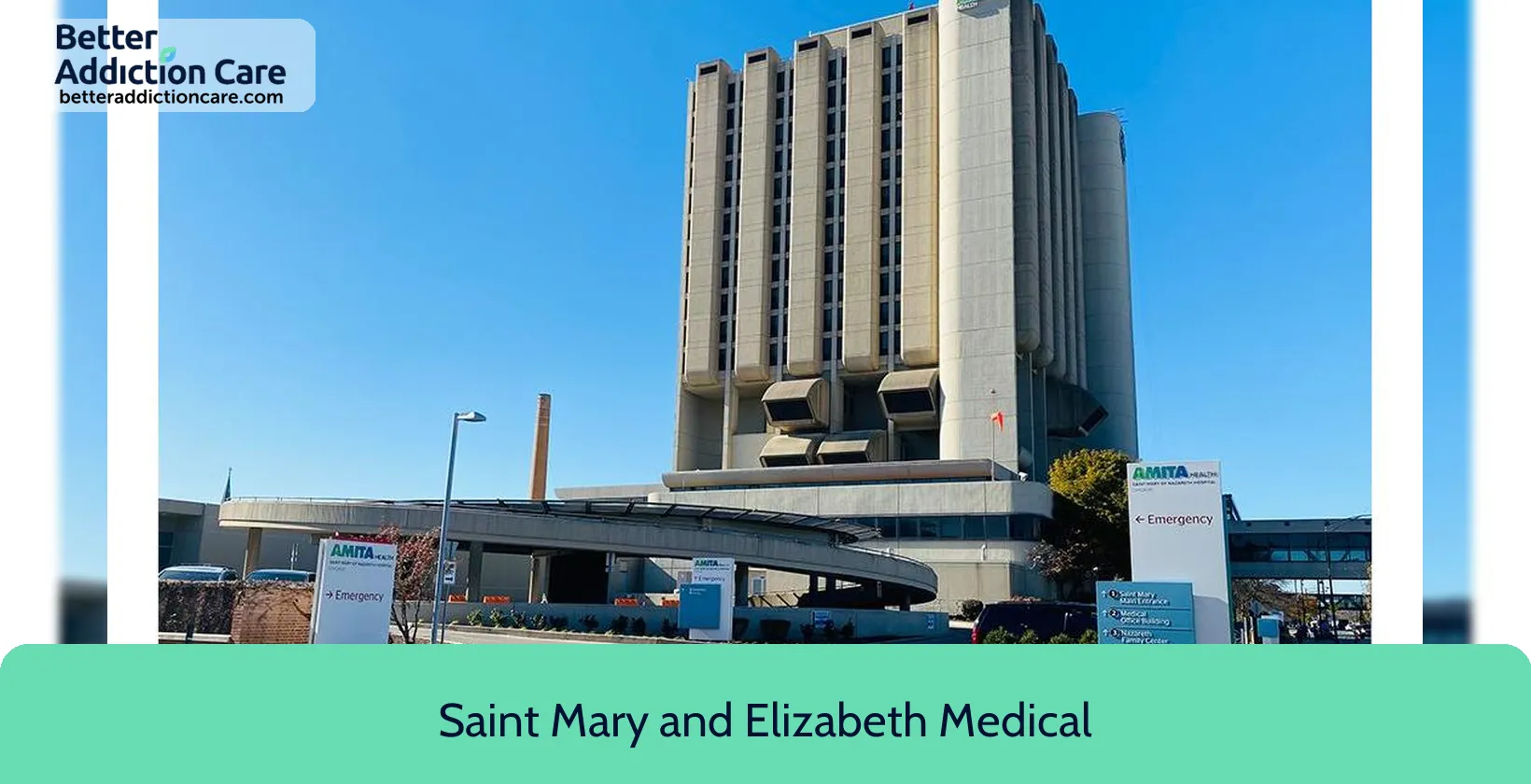
Overview
Alexian Brothers Housing and Health Alliance The Harbor is a substance abuse treatment center for people seeking treatment near Lake County. As part of their treatment modalities for recovery, Alexian Brothers Housing and Health Alliance The Harbor provides telemedicine/telehealth therapy, substance use disorder counseling, and trauma-related counseling during treatment. Alexian Brothers Housing and Health Alliance The Harbor is located in Waukegan, Illinois, accepting cash or self-payment for treatment.
Alexian Brothers Housing and Health Alliance The Harbor at a Glance
Payment Options
- Cash or self-payment
- Medicaid
- Federal, or any government funding for substance use treatment programs
- Payment assistance (check with facility for details)
Assessments
- Outreach to persons in the community
- Comprehensive substance use assessment
Age Groups
- Young adults
- Adults
- Seniors
Ancillary Services
- Case management service
- Mental health services
- Social skills development
- Transportation assistance
Highlights About Alexian Brothers Housing and Health Alliance The Harbor
6.80/10
With an overall rating of 6.80/10, this facility has following balanced range of services. Alcohol Rehabilitation: 8.00/10, Drug Rehab and Detox: 6.00/10, Insurance and Payments: 6.00/10, Treatment Options: 7.21/10.-
Alcohol Rehabilitation 8.00
-
Treatment Options 7.21
-
Drug Rehab and Detox 6.00
-
Insurance and Payments 6.00
Accreditations
State department of health:

Government agencies issue State Licenses, which grant rehabilitation organizations permission to conduct their operations lawfully within specific geographic regions. Licenses needed to operate are typically determined by the type of rehabilitation program offered by the facility and its physical location.
Treatment At Alexian Brothers Housing and Health Alliance The Harbor
Treatment Conditions
- Alcoholism
- Substance use treatment
Care Levels
- Hospital inpatient treatment
- Long-term residential
- Aftercare
- Halfway house
Treatment Modalities
- Telemedicine/telehealth therapy
- Substance use disorder counseling
- Trauma-related counseling
- Group counseling
- 12-step facilitation
Ancillary Services
Additional Services
- Pharmacotherapies administered during treatment
- Mentoring/peer support
- Breathalyzer or blood alcohol testing
Special Programs
- Clients with co-occurring mental and substance use disorders
- Clients with HIV or AIDS
- Clients who have experienced trauma

Additional Locations
Common Questions About Alexian Brothers Housing and Health Alliance The Harbor
Contact Information
Read our Most Recent Article About Drug Addiction
DISCLAIMER: The facility name, logo and brand are the property and registered trademarks of Alexian Brothers Housing and Health Alliance The Harbor, and are being used for identification and informational purposes only. Use of these names, logos and brands shall not imply endorsement. BetterAddictionCare.com is not affiliated with or sponsored by Alexian Brothers Housing and Health Alliance The Harbor.











